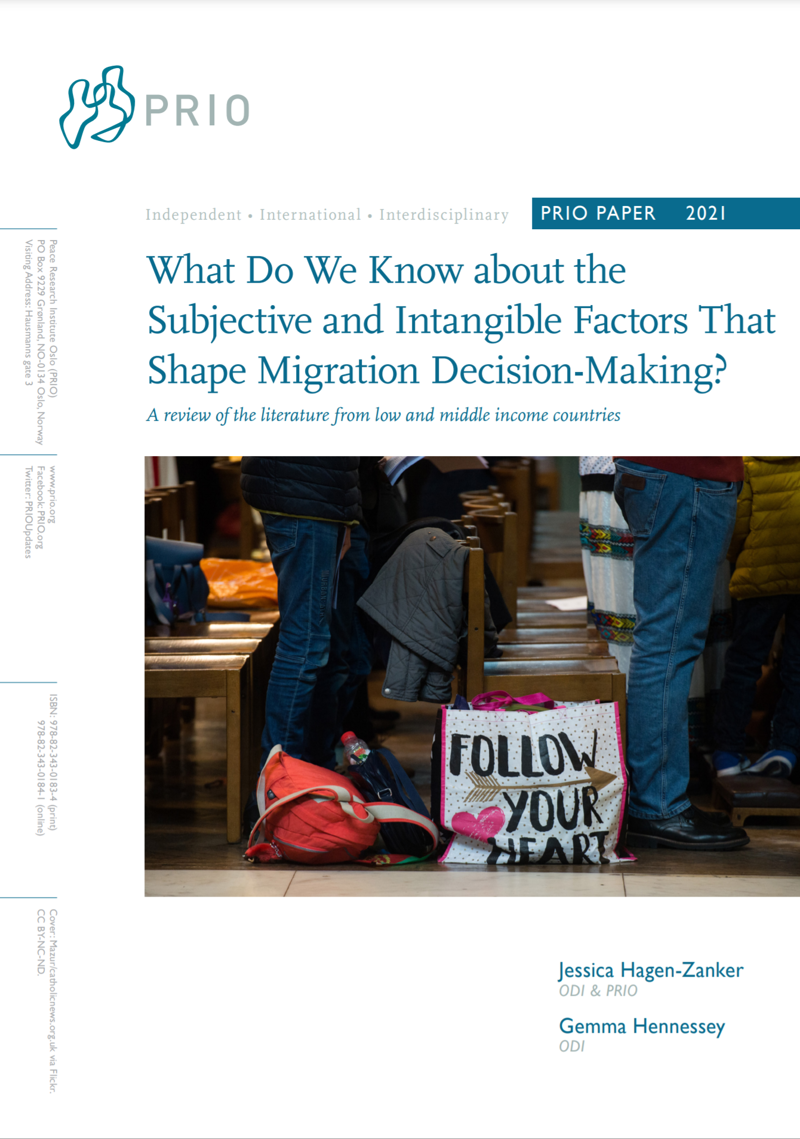
Migration decision-making is shaped by myriad unobservable and intangible factors, including personality traits, emotions, beliefs and values. These have long been overshadowed by economic factors in migration research but are increasingly gaining attention. A new PRIO paper takes stock of the evidence on how these factors matter.
The paper is written by PRIO Global Fellow Jessica Hagen-Zanker and Gemma Hennessey, who both have their primary affiliation at ODI in London. It synthesises the new and rapidly growing inter-disciplinary body of evidence on the subjective and intangible factors contributing to migration decision-making, with a focus on low and middle income countries.
A total of 182 studies are included in the review. The studies are grouped under four broad categories: 1) imagination – the mental pictures people make when contemplating migration, imagining and visualising themselves in a future time and place; 2) personality traits – traits such as extraversion, patience and adaptability, as well as individuals' risk tolerance or risk aversion; 3) emotions and feelings – the layers of emotion dispersed in the decision-making process, including (lack of) hope, love and intimacy, place attachment and feelings of discrimination/inequality; and 4) beliefs and values – internalised norms and individual beliefs, including religious or political beliefs, and values, such as family orientation.
The paper written This review was completed as part of the 'Migrant perceptions, knowledge and decision-making' work package of the MIDEQ Hub, a large research initiative funded by the UKRI Global Challenges Research Fund, with co-funding from Irish Aid. The analysis dovetails with collaboration between ODI and PRIO on the MIGNEX project, which generates new knowledge on migration, development and policy.
Hagen-Zanker, Jessica & Gemma Hennessey (2021) What Do We Know about the Subjective and Intangible Factors That Shape Migration Decision-Making?, PRIO Paper. Oslo: PRIO.





